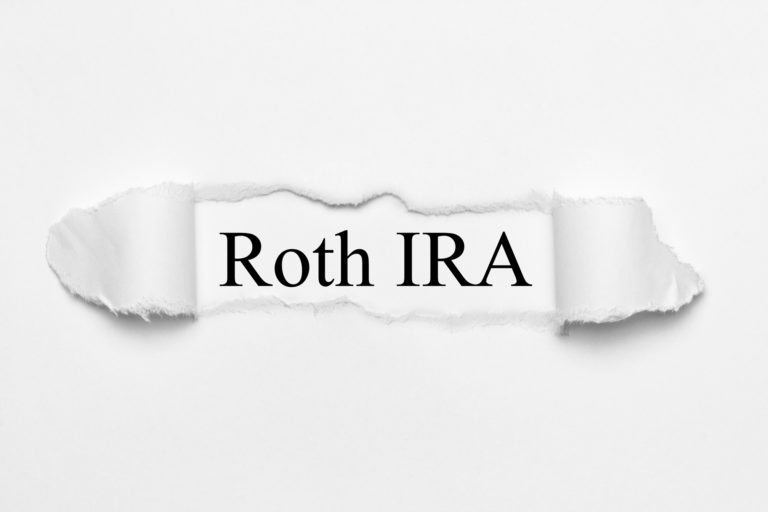Major Risks to Family Wealth
Protect your family assets for future generations.
Provided by Erick Arnett
All too often, family wealth fails to last. One generation builds a business—or even a fortune— lost in the ensuing decades. Why does it happen, again and again?
Often, families fall prey to serious money blunders, making classic mistakes, or not recognizing changing times.
This article is for informational purposes only and is not a replacement for real-life advice. Make sure to consult legal and tax professionals before modifying your overall estate strategy.
Procrastination. This is not just a matter of failing to create a strategy but also failing to respond to acknowledged financial weaknesses.
As a hypothetical example, say there is a multimillionaire named Alan. The designated beneficiary of Alan’s six-figure savings account is no longer alive. He realizes he should name another beneficiary, but he never gets around to it. His schedule is busy, and updating that beneficiary form is inconvenient. Alan forgets about it and moves on with his life.
However, this can cause significant headaches for those left behind. If the account lacks a payable-on-death (POD) beneficiary, those assets may end up subject to probate. Using our example above, Alan’s heirs may discover other lingering financial matters that required attention regarding his retirement accounts, real estate holdings, and other investment accounts.1
Minimal or absent estate management. Every year, some multimillionaires die without leaving any instructions for distributing their wealth. These people are not just rock stars and actors but also small business owners and entrepreneurs. According to a recent Caring.com survey, 58% of Americans have no estate preparations in place, not even a will.2
Anyone reliant on a will alone may risk handing the destiny of their wealth over to a probate judge. The multimillionaire who has a child with special needs, a family history of Alzheimer’s or Parkinson’s, or a former spouse or estranged children may need a greater degree of estate management. If they want to endow charities or give grandkids an excellent start in life, the same idea applies. Business ownership calls for coordinated estate management with consideration for business succession.
A finely crafted estate strategy has the potential to perpetuate and enhance family wealth for decades and perhaps, generations. Without it, heirs may have to deal with probate and a painful opportunity cost—the lost potential for tax-advantaged growth and compounding of those assets.
The lack of a “family office.” Decades ago, the wealthiest American households included offices: a staff of handpicked financial professionals who supervised a family’s entire financial life. While traditional “family offices” have disappeared, the concept is as relevant as ever. Today, select wealth management firms emulate this model: in an ongoing relationship distinguished by personal and responsive service, they consult families about investments, provide reports, and assist in decision-making. If your financial picture has become far too complex to address on your own, this could be a wise choice for your family.
Technological flaws. Hackers can hijack email and social media accounts and send phony messages to banks, brokerages, and financial professionals to authorize asset transfers. Social media can help you build your business, but it can also expose you to identity thieves seeking to steal both digital and tangible assets.
Sometimes a business or family installs a security system that proves problematic—so much so that it’s silenced half the time. Unscrupulous people have ways of learning about that, and they may be only one or two degrees separated from you.
No long-term strategy in place. When a family wants to sustain wealth for decades to come, heirs will want to understand the how and why, and be on the same page. If family communication about wealth tends to be more opaque than transparent, then that communication may adequately explain the mechanics and purpose of the strategy.
No decision-making process. In some high-net-worth families, financial decision-making is vertical and top-down. Parents or grandparents may make decisions in private, and it may be years before heirs learn about those decisions or fully understand them. When heirs do become decision-makers, it is usually upon the death of the elders.
Horizontal decision-making can help multiple generations commit to the guidance of family wealth. Financial professionals can help a family make these decisions with an awareness of different communication styles. In-depth conversations are essential; good estate managers recognize that silence does not necessarily mean agreement.
You may attempt to reduce these risks to family wealth (and others) in collaboration with financial and legal professionals. It is never too early to begin.
Erick Arnett may be reached at (352) 616-0511 or Erick@TakePointWealth.com
www.TakePointWealth.com
This material was prepared by MarketingPro, Inc., and does not necessarily represent the views of the presenting party, nor their affiliates. This information has been derived from sources believed to be accurate. Please note – investing involves risk, and past performance is no guarantee of future results. The publisher is not engaged in rendering legal, accounting or other professional services. If assistance is needed, the reader is advised to engage the services of a competent professional. This information should not be construed as investment, tax, or legal advice and may not be relied on for the purpose of avoiding any Federal tax penalty. This is neither a solicitation nor recommendation to purchase or sell any investment or insurance product or service, and should not be relied upon as such. All indices are unmanaged and are not illustrative of any particular investment.
Investment advisory services are offered through Retirement Wealth Advisors, LLC (RWA), a registered investment advisor. RWA and Take Point Wealth are independent of each other. Insurance products and services are not offered through RWA but are offered and sold through individually licensed and appointed agents. No investment strategy can guarantee a profit or protect against loss in periods of declining values. Opinions expressed are subject to change without notice and are not intended as investment advice or to predict future performance. Past performance does not guarantee future results. Consult your financial professional before making any investment decision.
Citations
- SmartCapitalMind.com, February 4, 2022
- Yahoo.com, January 18, 2022




